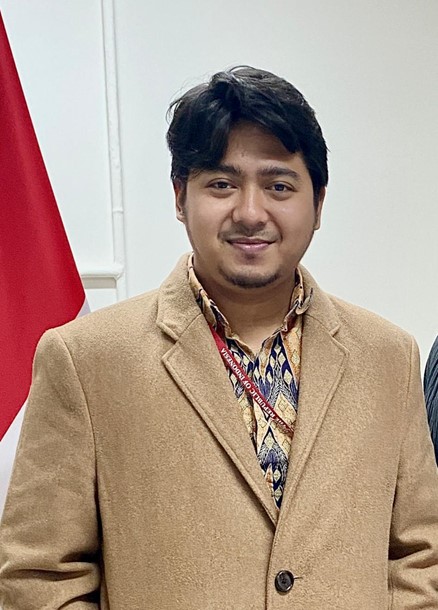“Diplomats are the eyes, ears, and voice of the country, and they can influence important political decisions”: a student from RUDN builds his career in the diplomacy of the largest island state
The principles of Indonesia’s foreign policy declare independence and activity. Did the introduction of this paragraphs affect the work of Indonesian diplomats?
Yes, due to the fact that in the fifties Jakarta became one of the initiators of the Non — Aligned Movement, the main idea of which is non-participation in military blocs, some major powers were dissatisfied with our actions. It was necessary to change the strategy of negotiations, and then this principle was born.
How did you know that you chose the right profession?
At RUDN, my program is called “Global security and development cooperation” — these words are important for me, because it’s necessary to be able to establish links between countries and reduce the likelihood of conflicts or bloody wars. A diplomat is one of the most prestigious professions in my native country. Being the head, eyes, ears, hands and voice of your country and influencing important political decisions means a lot. Every year, only 72 positions are vacant in Indonesia, and thousands of young diplomats apply for them — this is very competitive environment.
What is the biggest difference in the training of diplomats in Russia and in Indonesia?
In Russia, a person will enter the Diplomatic Academy to get education, but in Indonesia it doesn’t work like that: you can complete a program in management or law and apply for a diplomatic position. But if this is a war zone, the rules change: then we should hire more doctors to become a driving force in the military region.
What are you going to do after your studies?
My dream is to complete a post-graduate program, I’m already used to this atmosphere. Although I can’t help thinking that I will probably return to Indonesia. I want to write about the cooperation of my country with others and promote cooperation between representatives of different states.
Is it already possible to implement projects on regulating international relations?
I am currently developing a project plan with our Embassy for interaction between students and specialists from Russia and Indonesia. In Indonesia, I work for a technology company where my boss lets me study while I work, and I also write articles in order to have scientific publications. For example, once I had an article about the policy of the 44th President of the United States. The research was conducted using the method of qualitative and quantitative analysis, and the results were quite interesting!
RUDN University staff and alumni received state and departmental awards at the State Kremlin Palace during a festive concert in honor of RUDN 65th anniversary.
An architectural-landscape project by a 5th-year student of RUDN has been shortlisted for the annual International Professional ADD AWARDS 2024 for architects, designers, and developers in the “Urban Environment” category.
RUDN University employees’ work and contribution to the development of the university cannot go unappreciated. The Ministry of Science and Higher Education of Russia recognizes talented university employees and present them with various departmental and state awards.
